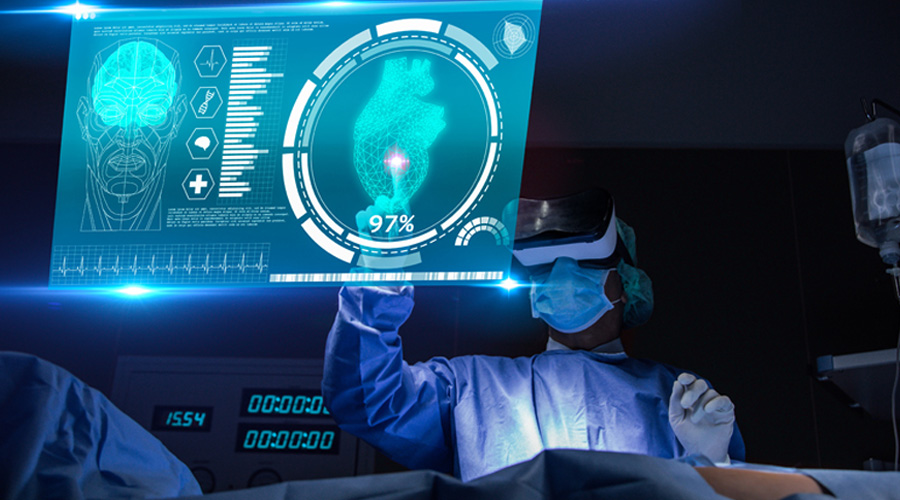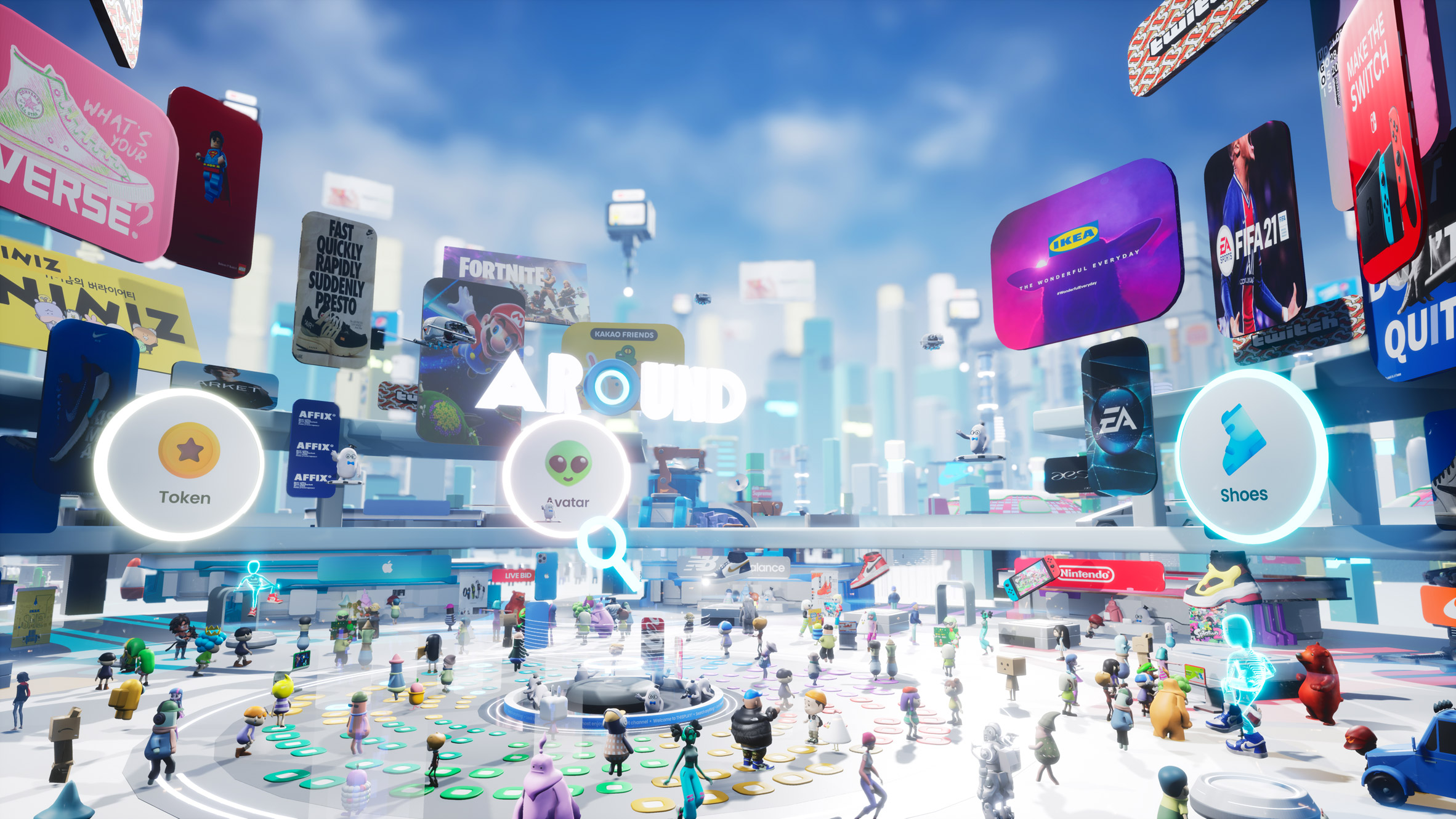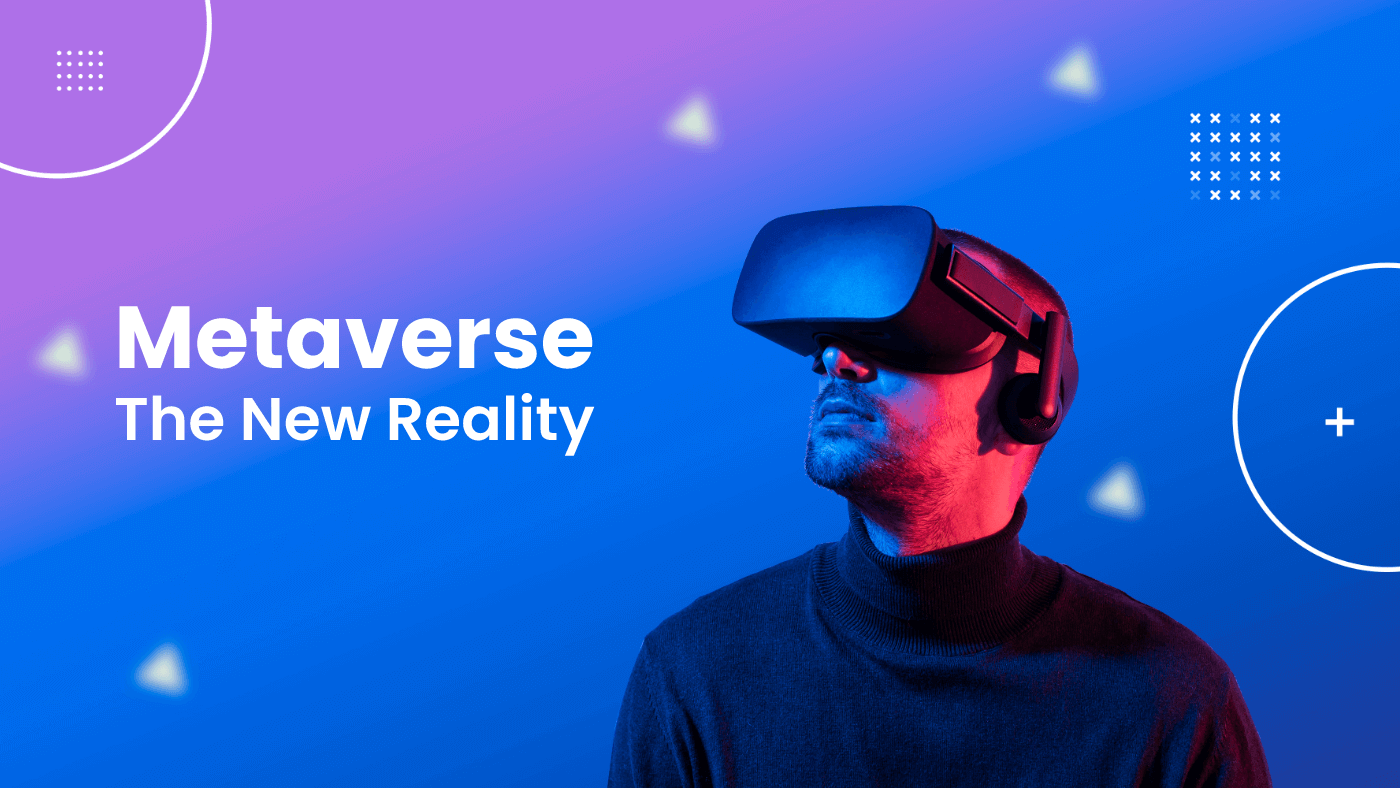Being innovative is more important now than ever before for everyone, whether you’re a country, a group, or just one person. The Metaverse is the next big innovation.
Picture a make-believe world where lots of people can do everything they normally do, like work and shop, but from their sofas at home. It’s a 3D virtual place that you can see on your computer screen, and it feels like you’re actually there. You make a digital copy of yourself, called an avatar, and you can use it to move around and do things. The Metaverse is like a digital copy of our real life, where everything we do can be done online. Right now, we use apps like Zoom, WebEx, and Skype to attend virtual meetings, but in the Metaverse, we can actually meet up as digital versions of ourselves.
Virtual reality lets you interact with a 3D world that looks and feels like the real thing. You wear a VR headset that takes over your vision and can use special gloves, vests, or suits to make it feel even more realistic. Augmented reality is less immersive than VR because it adds digital things on top of what you can see in the real world. There are lots of real-life examples of how the Metaverse is being used that you might not even know about.

Health
The metaverse is not just for gaming and entertainment; it also has practical uses in healthcare. The underlying technologies include XR (augmented, virtual, and mixed reality), blockchain, and M-worlds, which are virtual places where people can gather and create content. XR is already being used in medical training, diagnostics, therapy, and conferences. Companies can also benefit from the metaverse by improving patient access, reducing costs, enhancing patient experience, and streamlining operations. Startups are driving much of the development activity, with many already offering viable products that major providers are using. For example, Sympatient and Oxford VR have developed VR-based treatments for anxiety, phobias, PTSD, and stress.
Big healthcare providers are using augmented reality (AR) to assist in medical procedures like spine surgeries and catheter placement. This technology helps medical professionals to visualize the patient’s anatomy in 3D, which improves accuracy, speed, and outcomes. Extended reality (XR) is also being used in physical therapy and rehabilitation to make care more accessible and cost-effective. With XR, patients can receive treatment and track their progress remotely, using body sensors and personalized plans of care administered through virtual reality (VR). Most healthcare providers and some payers are already experimenting with metaverse. However, only a few have implemented formal programs, with most companies still figuring out their vision and strategy for the metaverse. Nonetheless, the high levels of use reported by healthcare companies suggest that adoption is expanding and that the importance of the metaverse will increase in the future.

Manufacturing Industry
The metaverse is useful for businesses in the industrial sector. They can create digital copies of their manufacturing processes known as digital twins. Digital twins are virtual copies of real-life manufacturing processes that can be used to simulate different situations without stopping production or risking worker safety. Some manufacturing companies have been using digital twins for years to improve productivity and streamline workflows by analyzing real-time data from plant operations. As the digital twin collects and analyzes more data, it can develop its own metaverse to test new business models in a low-risk environment, allowing businesses to sustain efficiency while promoting innovation.
Businesses are now using virtual reality (VR) to train staff on how to use and maintain equipment, especially in industries that deal with heavy machinery. VR provides a safe environment for staff to learn without the risk and cost of using real equipment. Companies like JetBlue and Verizon have successfully implemented VR training, and many other businesses are considering deploying it to educate new staff.Additionally, manufacturers utilize VR to create a virtual “twin” of physical products or locations, which enables simulations to occur before practical deployments. They also use AR and VR technologies to maintain and repair equipment remotely, and design engineers can collaborate virtually to build designs. Finally, VR is used by manufacturers to create digital assets and open up new revenue sources.

Gaming
Metaverse gaming is a type of virtual gaming that can transform many different aspects of gameplay. It has a social aspect where players can build relationships with other players and invite real-world friends to join. In addition to linear storytelling and rules, players can engage in profitable activities. They like selling assets they’ve won in-game to other players using metaverse-based crypto gaming. The Metaverse also offers a more flexible gaming experience. Players can create content, build sub-games, and use the platform for other activities. Portable game assets enable the use of items acquired in one game in another game environment.
Metaverse game developers are incorporating next-gen technologies like blockchain, AI, and IoT. AR and VR technologies provide an immersive 3D experience that enhances Metaverse development. AR can transform the real world into a virtual gaming world using visual elements and characters. Players can enjoy this experience on their smartphones and other digital devices. Blockchain technology allows businesses to create decentralized Metaverse projects. They offer numerous benefits, including digital proof of ownership, transfer of value, digital collectability, and interoperability. Metaverse-based cryptocurrencies enable users to transfer value in the 3D Metaverse.
IoT applications connect the virtual world of the Metaverse to real-world digital devices so that objects can switch easily in changing environments. 3D reconstruction is a modern trend that involves creating a virtual 3D model of an object or environment. Real estate companies have been using this technology to offer virtual property tours. Metaverse technology has been using 3D reconstruction to complement other technologies already existing in the Metaverse. Metaverse is taking the gaming industry to new heights every year and becoming a popular technology that will transform gaming. It’s a powerful tool that can uplift virtual reality in a blink of an eye.

Architecture and Engineering Designs
Many engineers and designers are already involved in creating apps and programs for it. It is great for helping engineers, designers, and architects work together. During the pandemic, AR and VR technology allowed employees to work remotely and interact with customers. They created immersive experiences and showcased models without the need for travel. This collaboration is better than just having a video conference. The Wild and IrisVR created a software platform for the Meta headset to enhance remote working. The platform enables users to have a content-rich environment. They can also crawl inside models, throw ideas on the wall, and hear each other agree or disagree. Additionally, the metaverse is helping engineers and designers by allowing them to create effective and complete prototypes without investing too much time, resources, or materials.
With the metaverse, the design process becomes much simpler. Building Information Modeling (BIM) is an advanced technique that is even better than traditional CAD. Digital twins are a significant step forward in the use of CAD plans. They are particularly popular in the construction and engineering industries. These enable faster inspections, maintenance, and repairs of structures like bridges. The metaverse provides customers with a precise idea of how their project will look after it is complete. This includes the building finishing alternatives, such as architectural treatments, glass kinds, and facade designs. Matterport is a leading brand that uses digital twins to build immersive experiences for real estate brokers, photographers, event organisers, and homeowners. Additionally, using virtual reality in presentations makes it impossible to take your eyes off the designs.

Immersive Commerce
Immersive commerce is a fancy term for a new way of shopping online. This feels like you’re actually in a physical store. It’s the future of shopping, and it’s becoming more and more popular. In fact, it’s estimated that by 2035, 80% of all consumer activity will happen online. The Metaverse is a perfect place for this kind of shopping experience. One can find everything from handbags to favorite TV shows there, and it feels just like real life.
In the coming years, we expect the Metaverse to grow and offer new services that blend offline and online shopping. With the increasing use of augmented reality, customers can also evaluate products before buying, which boosts their confidence in their purchase decisions and reduces the anxiety associated with shopping online. Retailers benefit too, as returns are less and customer profiles expand, which leads to better offers and increased customization. In the Metaverse, brands can offer customers fully personalized digital experiences, which is not possible in conventional retail. Additionally, businesses can build communities in the Metaverse and reach a global audience, which is particularly beneficial for niche markets. Online destinations can become more than just a shopping hub, but a space for activities and social groups. Compared to traditional retail, the Metaverse offers more opportunities for communication and engagement between buyers and sellers.

How can Genesis Convergence assist you with developing for the Metaverse?
Genesis Convergence is an experienced Metaverse development company that specializes in building immersive applications. Our team of Metaverse experts can be your trusted partner in metaverse software development, from conceptualization to success. We offer a range of Metaverse development services, including Metaverse application development, Metaverse game development, Metaverse NFT Marketplace development, Metaverse interaction services, Metaverse social media app development, and more. Genesis Convergence has the capability to assist you in creating a metaverse.
Picking Genesis Convergence as your partner for metaverse development will ensure access to experienced experts and a suite of services tailored to your specific needs.
